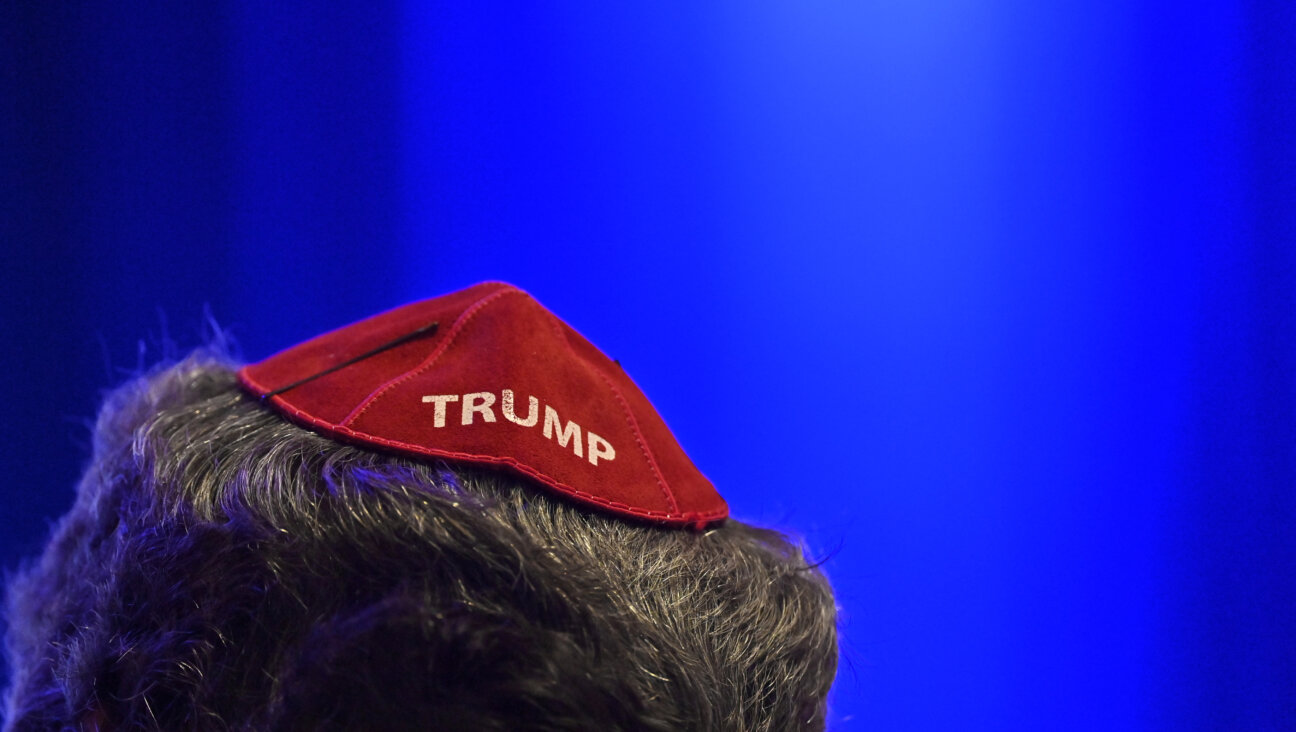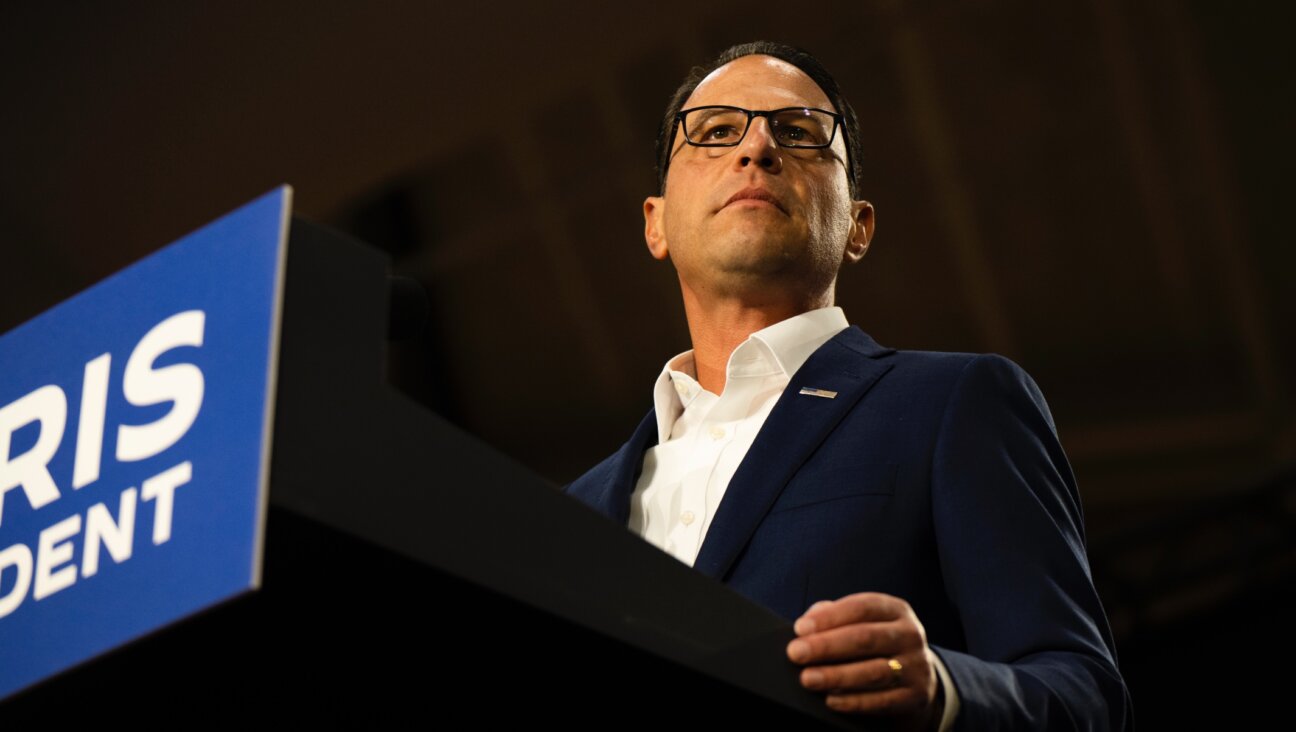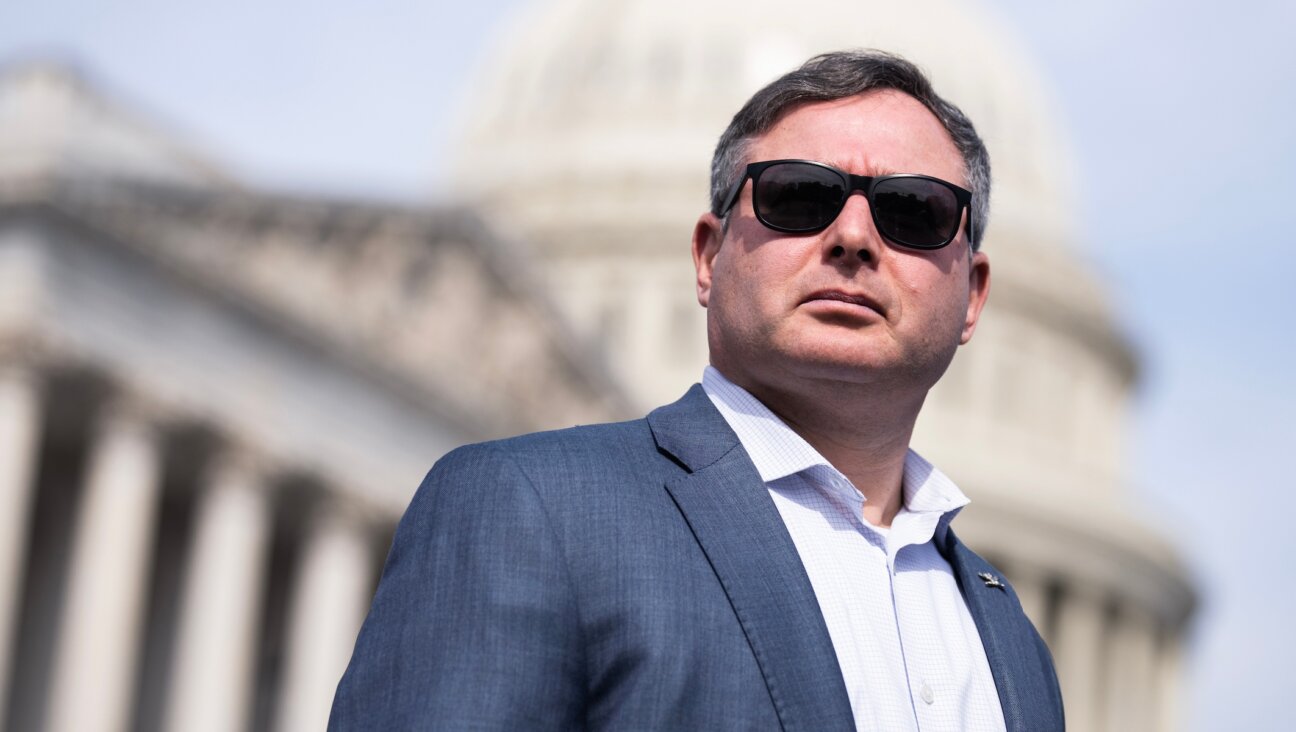Bush Urged To Press Putin on Tolerance
WASHINGTON — On the eve of his summit with Russian Federation President Vladimir Putin, President Bush is being urged to press the Russian leader on Moscow’s alleged violations of religious freedom and failure to crackdown sufficiently on antisemitism.
Members of the United States Commission on International Religious Freedom, a Federal agency whose members are appointed jointly by the White House and Congress, are pledging to deliver a devastating pre-summit briefing next week to Bush on Russia’s recent failures on these fronts. Commission members are expected to encourage Bush to make religious freedom and ethnic tolerance a priority in bilateral relations with Russia, at a time when Bush is promising to transform the pursuit of freedom and democracy worldwide into the overarching theme of his second-term foreign policy.
“The commission hopes that President Bush will raise issues of human rights, including religious freedom, in his upcoming meeting with President Putin,” said Felice Gaer, vice chair of the commission, during a meeting with congressional staffers and reporters on Capitol Hill this week.
Gaer, director of the American Jewish Committee’s Jacob Blaustein Institute for the Advancement of Human Rights, and her fellow commissioners will brief Bush next week, days before his scheduled February 24 summit with Putin in Bratislava, Slovakia. “Russia’s retreat from democracy and human rights is a matter of deep concern to the commission,” Gaer said.
The calls for a tougher line with Putin come as the Bush administration is attempting to strike a balance between criticizing Moscow over its failures on human rights and convincing Russia to end its support of Iran’s nuclear program. Already, during her meetings early in the week with Russian officials, Secretary of State Condoleezza Rice was hammering home an anti-authoritarian message.
Commission members briefed Bush on the deterioration in Russia more than a year and a half ago, shortly after they issued a report on the rise in religious freedom violations there. The report stated that “most if not all” concerns regarding religious freedom in the Russian Federation are related to the “increasing influence of authoritarianism, and perhaps even chauvinistic, strains in the Russian government.” Bush, Gaer told the Forward, “was disbelieving of those concerns.” According to Gaer, the president said, “Nobody has ever told me these things.”
“I hope that he will be as interested this time around,” Gaer said. She said that members of the commission were encouraged by statements Rice made in Warsaw this week following a meeting with her Russian counterpart, Sergei Lavrov, encouraged members of the commission. “It is important that Russia make clear to the world that it is intent on strengthening the rule of law, strengthening the role of an independent judiciary, permitting a free and independent press,” Rice said. “These are all the basics of democracy.”
In her Capitol Hill briefing, Gaer stopped short of accusing Putin of bearing personal responsibility for the deteriorating human-rights situation in Russia. But other members of the panel she organized did not hesitate to point the finger at the Russian leader.
“This is a man who has actively encouraged very ugly sentiments,” said Paul Goble, a former CIA and State Department official, who is now a senior research associate of the EuroCollege at the University of Taru, Estonia. “There have been a whole bunch of direct actions” that Putin has taken to foment religious and ethnic intolerance, Goble said.
During a visit to Auschwitz late last month for a ceremony marking the 60th anniversary of the liberation of the World War II-era death camp, Putin acknowledged that antisemitism is rampant in Russia. He vowed to root it out. But panelists said that the nationalist Russian president has not lived up to such pledges.
If improvements have been made on human rights, they have taken place “where they are visible for people in the West to find, and in respect to religions that the West cares about.”
The other panelists — Nikolai Butkevich, research and advocacy director at the Union of Councils for Jews in the Former Soviet Union, and Lawrence Uzzell, president of International Religious Freedom Watch, a Virginia-based independent research center — seemed to agree with Goble that the persecution of Muslims is much more severe than that of any other religious minority in the Russian Federation.
Said Uzzell: “If you’re a Jew in Russia today, you have to worry about walking down the street and getting beaten up by a skinhead, and the state doing nothing about it. If you’re a Christian you really don’t have to worry about this, but you worry about formal state action — shutting down your activities, denying the right to practice your faith — but if you’re a Muslim, you have to worry about both, evermore.”
This, panelists argued, is the case, because the West — and particularly America — does not care much about the religious rights of Muslims. “Putin gets away with it,” Goble said, because of the West’s “great bias” against Islam.
Law-enforcement authorities’ raids on mosques, harassing and beating up Muslim worshippers, are almost daily occurrences in Russia, Goble said. “And,” he added, “the moves against Islam are opening up the door to moves against other faiths and ethnic communities, and unless we speak out now about what’s being done against the Muslims, we are going to see it carried out against other groups.”
Butkevich, of the Union of Councils for Jews in the Former Soviet Union, said that although the Russian government recently has intensified its efforts to reign in skinheads — the main culprits of antisemitic acts in the Russian Federation — law enforcement is still lax, and the government’s overall attitude toward antisemitism is still somewhat dismissive. He cited the Russian government’s rejection of the recent U.S. State Department report on antisemitism worldwide, which was particularly critical of the situation in Russia.
In the month since the State Department report was published, there has been a sharp increase in antisemitic acts in Moscow, including an open letter from dozens of public figures, including members of the Russian Parliament, to the prosecutor general’s office, urging him to ban all Jewish organizations in Russia and accusing Jews of, among other things, drinking Christians’ blood and of “Satanism.”
A message from our CEO & publisher Rachel Fishman Feddersen

I hope you appreciated this article. Before you go, I’d like to ask you to please support the Forward’s award-winning, nonprofit journalism during this critical time.
At a time when other newsrooms are closing or cutting back, the Forward has removed its paywall and invested additional resources to report on the ground from Israel and around the U.S. on the impact of the war, rising antisemitism and polarized discourse..
Readers like you make it all possible. Support our work by becoming a Forward Member and connect with our journalism and your community.
— Rachel Fishman Feddersen, Publisher and CEO






















